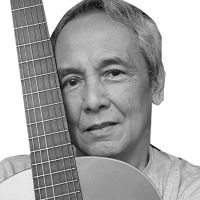Poisons in the right doses

December 3, 2006 | 12:00am
When we were young and immature, maturity seemed like some far-off place that we would never reach. When we were growing up, big people would dangle the word before us like it was some special state of being to aspire for, and when we attained it, doors would open for us. Maturity was the ticket to driving, drinking, having a serious relationship, earning our own money, living on our own and being left largely alone to be ourselves and make our own decisions.
Now that I have been legally an adult for many years, I realize that the descriptions of maturity forced upon me as a kid were both overrated and underrated.
As an adult, I miss being carefree and irresponsible. I miss being immature and reckless and sometimes I allow myself some latitude to be a bratty kid again who must have instant gratification.
I have largely controlled my gadget hunger for the "latest" and the "best." And I don’t always enjoy making decisions about my life. Sometimes, I just want fate to take over so I have someone to blame if things don’t work out.
I found this take on maturity in Ken Wilber’s writings. In his view, maturity has something to do with how well we can relate to, control, balance and handle the following topics: sex (including love, affection and relationships), food (and all other substances we ingest into our bodies), work (including ambitions and preoccupations), God (including religion, art and the unseen but "felt" spiritual states) and money (including desire for all material things).
These are areas of human activity that every adult must deal with properly to be able to live functionally. In life, all these ingredients add up to a powerful, potent brew. Not being able to handle even just one of these well can lead to a lot of trouble, not to mention major dysfunctions in one’s life. But it happens more commonly than we think.
We aren’t always on top of our own lives. Who hasn’t "lost it" even once? I am talking about being overwhelmed or shortchanged because of unreal expectations, deception, not being committed enough to a type of work or taking on too much work, not knowing how to handle money (like losing it on a bad purchase or a reckless investment), abusing one’s body with food and substances, indulging in liaisons we shouldn’t be in, etc. Yet there is no escaping these "poisons" in our lives.
Who was it who said about women, "Can’t live with them, can’t live without them"? This applies as well to all of the above ingredients. And even when you take vows of chastity, poverty and obedience, you will still have to deal with them – probably more so, since, as Carl Jung said, what we resist persists.
We must find some modus vivendi with these "poisons" so that we can use them for our own ends and not be consumed by them. We must be skillful and know how much or how little to indulge in them. We must utilize them in dosages that are not only manageable but helpful and appropriate. When we do not, they can be addicting or even lethal.
We’ve all heard of people going off the deep end with sex and gambling addictions, people who are workaholics, bulimics and anorexics, alcoholics and drug addicts, people who are blinded by money, compulsive shoppers, people hooked on power and a distorted sense of superiority. All these are manifestations of mishandling or misuse of one or more of the above.
What about addiction to religion? Is there such a thing? Actually, we can be addicted to anything.
John Bradshaw describes addiction as anything or any activity we do repeatedly and obsessively with the end purpose of altering our moods to escape reality. This includes the use of substances, including food and drugs, that we take into our bodies with the same end in mind.
If we engage in an activity just to feel good and then use it repeatedly to escape our problems so that we become dysfunctional without it, then, by Bradshaw’s definition, it is an addiction. I remember hearing a Jesuit compare religion to salt. One must have it in the right doses. Too much or too little is not good. I listened to him with some incredulity then. But he wasn’t the first to express a similar view. Karl Marx called religion the opiate of the masses. Judas in Jesus Christ Superstar criticized Jesus’ followers for having "too much heaven on their minds." Who was it who said that saints are hard to live with?
Moderation is the key. Basically, I think what the definition of addiction also implies is that we do not really need anything from the outside to be happy, and that putting ourselves in a situation of needing and obsessing on anything or anyone to the point that we need a constant fix makes us lose our autonomy and opens us to the feeling of being incomplete. Then, before we know it, we are hooked. We are not enough. Our happiness and reason for living have become dependent on something outside.
When we find ourselves in this situation, even the world will not be enough. We discover that we are devoid of creativity and the capacity to be happy just by being ourselves. When the Dalai Lama first came to know about anorexia, he was astounded that anyone could actually be like that. And then he cried, realizing the suffering and self-loathing that anorexics go through.
The idea, I believe, is to indulge in these poisons with full attention and mindfulness. Because being mindful makes us aware when what we are doing is already bad for us. Mindlessness gets us hooked. Mindless actions can easily become addictions while conscious ones make for good practice. We become aware of the difference between our real needs and our wants.
Then we can begin to live a real life in the real world.
Visit http://haringliwanag.pansitan.net. Write to jim_paredes@yahoo.com if you want privacy.
Now that I have been legally an adult for many years, I realize that the descriptions of maturity forced upon me as a kid were both overrated and underrated.
As an adult, I miss being carefree and irresponsible. I miss being immature and reckless and sometimes I allow myself some latitude to be a bratty kid again who must have instant gratification.
I have largely controlled my gadget hunger for the "latest" and the "best." And I don’t always enjoy making decisions about my life. Sometimes, I just want fate to take over so I have someone to blame if things don’t work out.
I found this take on maturity in Ken Wilber’s writings. In his view, maturity has something to do with how well we can relate to, control, balance and handle the following topics: sex (including love, affection and relationships), food (and all other substances we ingest into our bodies), work (including ambitions and preoccupations), God (including religion, art and the unseen but "felt" spiritual states) and money (including desire for all material things).
These are areas of human activity that every adult must deal with properly to be able to live functionally. In life, all these ingredients add up to a powerful, potent brew. Not being able to handle even just one of these well can lead to a lot of trouble, not to mention major dysfunctions in one’s life. But it happens more commonly than we think.
We aren’t always on top of our own lives. Who hasn’t "lost it" even once? I am talking about being overwhelmed or shortchanged because of unreal expectations, deception, not being committed enough to a type of work or taking on too much work, not knowing how to handle money (like losing it on a bad purchase or a reckless investment), abusing one’s body with food and substances, indulging in liaisons we shouldn’t be in, etc. Yet there is no escaping these "poisons" in our lives.
Who was it who said about women, "Can’t live with them, can’t live without them"? This applies as well to all of the above ingredients. And even when you take vows of chastity, poverty and obedience, you will still have to deal with them – probably more so, since, as Carl Jung said, what we resist persists.
We must find some modus vivendi with these "poisons" so that we can use them for our own ends and not be consumed by them. We must be skillful and know how much or how little to indulge in them. We must utilize them in dosages that are not only manageable but helpful and appropriate. When we do not, they can be addicting or even lethal.
We’ve all heard of people going off the deep end with sex and gambling addictions, people who are workaholics, bulimics and anorexics, alcoholics and drug addicts, people who are blinded by money, compulsive shoppers, people hooked on power and a distorted sense of superiority. All these are manifestations of mishandling or misuse of one or more of the above.
What about addiction to religion? Is there such a thing? Actually, we can be addicted to anything.
John Bradshaw describes addiction as anything or any activity we do repeatedly and obsessively with the end purpose of altering our moods to escape reality. This includes the use of substances, including food and drugs, that we take into our bodies with the same end in mind.
If we engage in an activity just to feel good and then use it repeatedly to escape our problems so that we become dysfunctional without it, then, by Bradshaw’s definition, it is an addiction. I remember hearing a Jesuit compare religion to salt. One must have it in the right doses. Too much or too little is not good. I listened to him with some incredulity then. But he wasn’t the first to express a similar view. Karl Marx called religion the opiate of the masses. Judas in Jesus Christ Superstar criticized Jesus’ followers for having "too much heaven on their minds." Who was it who said that saints are hard to live with?
Moderation is the key. Basically, I think what the definition of addiction also implies is that we do not really need anything from the outside to be happy, and that putting ourselves in a situation of needing and obsessing on anything or anyone to the point that we need a constant fix makes us lose our autonomy and opens us to the feeling of being incomplete. Then, before we know it, we are hooked. We are not enough. Our happiness and reason for living have become dependent on something outside.
When we find ourselves in this situation, even the world will not be enough. We discover that we are devoid of creativity and the capacity to be happy just by being ourselves. When the Dalai Lama first came to know about anorexia, he was astounded that anyone could actually be like that. And then he cried, realizing the suffering and self-loathing that anorexics go through.
The idea, I believe, is to indulge in these poisons with full attention and mindfulness. Because being mindful makes us aware when what we are doing is already bad for us. Mindlessness gets us hooked. Mindless actions can easily become addictions while conscious ones make for good practice. We become aware of the difference between our real needs and our wants.
Then we can begin to live a real life in the real world.
BrandSpace Articles
<
>















